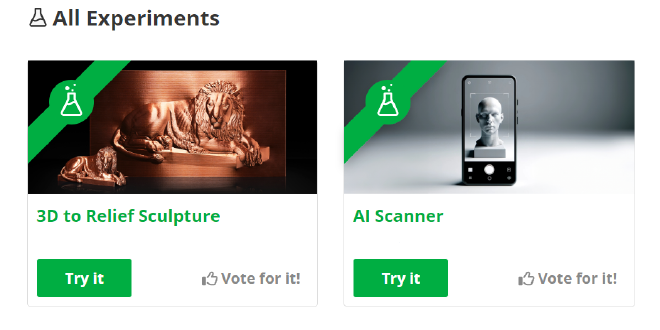Bambu Lab Introduces "MakerLab Experiments" Prototype Collection

Bambu Lab has recently announced the launch of MakerLab Experiments, a new initiative aimed at engaging users in the development process of modeling tools for 3D printing. The announcement, detailed on their official blog, introduces a platform that allows users, regardless of their CAD proficiency, to participate in creating and customizing 3D models. This move follows the success of MakerWorld, which has already garnered a diverse collection of high-quality models.
MakerLab offers tools like “Make My Sign,” “Make My Vase,” and “Pixel Puzzle Maker,” which are designed to be accessible for beginners, allowing them to produce personalized items such as nameplates, artwork, and vases. These tools aim to provide a personalized experience in 3D printing, catering to individual tastes and preferences.
Moreover, the MakerLab Experiments section serves as a testing ground for prototype modeling tools. This initiative is part of Bambu Lab’s broader strategy to involve the community in the development process, seeking feedback to refine and improve these tools. Currently, two experimental tools have been released: the “3D to Relief Sculpture” and “AI Scanner.”
The “3D to Relief Sculpture” tool enables users to transform 3D models into unique relief art by importing models and adjusting parameters to generate a desired perspective. It supports .stl and .obj file formats, allowing for a wide range of creative possibilities.
The “AI Scanner” tool allows for the creation of digital replicas ready for 3D printing by capturing a video of an object or person. This tool utilizes 3D reconstruction technology to generate detailed models, offering modes for scanning both common objects and human portraits. The AI scan model generation process typically takes around 30 minutes, although this can vary depending on server demand.
Bambu Lab’s MakerLab Experiments represents an invitation for users to actively participate in the development of new 3D printing tools, providing feedback that will influence future updates and releases. This approach not only fosters community engagement but also accelerates the refinement of these innovative tools.
For more information and to participate in the MakerLab Experiments, visit MakerWorld’s MakerLab section.